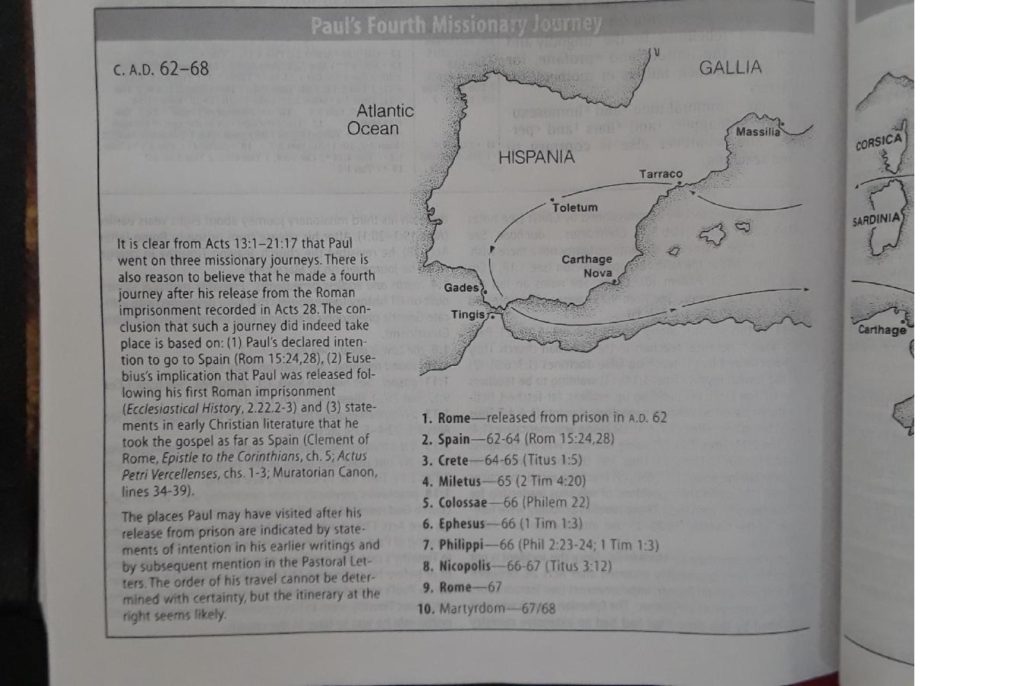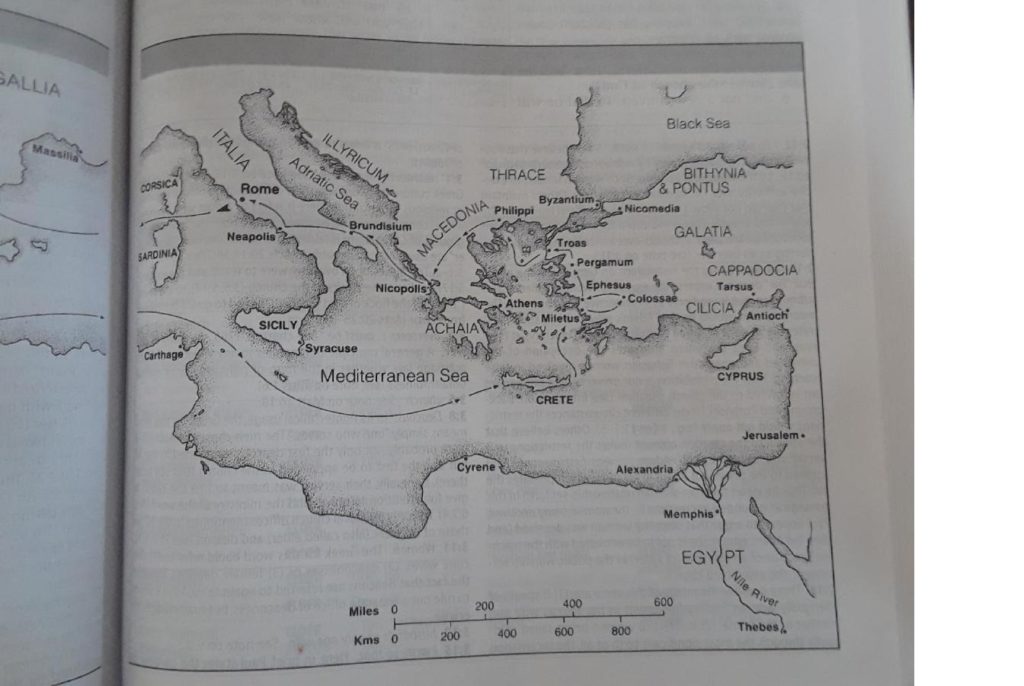II Timothy 1:13-18
May the Lord grant mercy to the household of Onesiphorus, for he … was not ashamed of my chains; … he searched for me earnestly and found me. (vv. 16-17) Here is more evidence of a second imprisonment, following a fourth missionary journey. In contrast we have Luke’s account of Paul’s Roman imprisonment: He lived there two whole years at his own expense, and welcomed all who came to him, proclaiming the kingdom of God and teaching about the Lord Jesus Christ with all boldness and without hindrance. (Acts 28: 30-31) Luke’s account is not consistent with Paul’s letter to Timothy that Onesiphorus had to search “earnestly” for him. In Luke’s account, Paul was readily available to anyone looking for him. It could well be that Paul was in a harsh, isolated Roman prison when he wrote his second letter to Timothy – not easily found and not at all welcoming.
Guard, through the Holy Spirit who dwells in us, the treasure which has been entrusted to you. (v. 14, NASB) Again, reading as if Paul is writing to us instead of to Timothy… Two things: First, a treasure has been entrusted to us. Reading in context, verses 8-13, it appears that the treasure that has been entrusted to us is the message of the Gospel. To guard that message, we need to make sure that no one distorts that message with false preaching or “steals” that message from our hearts. But secondly, we have the indwelling Holy Spirit standing ready to assist us in guarding that message. We’ll never fully understand this “indwelling Holy Spirit”, but we can accept His guardianship offer without ever fully understanding Him! Simply, He is there for us!
Slava Bohu!

